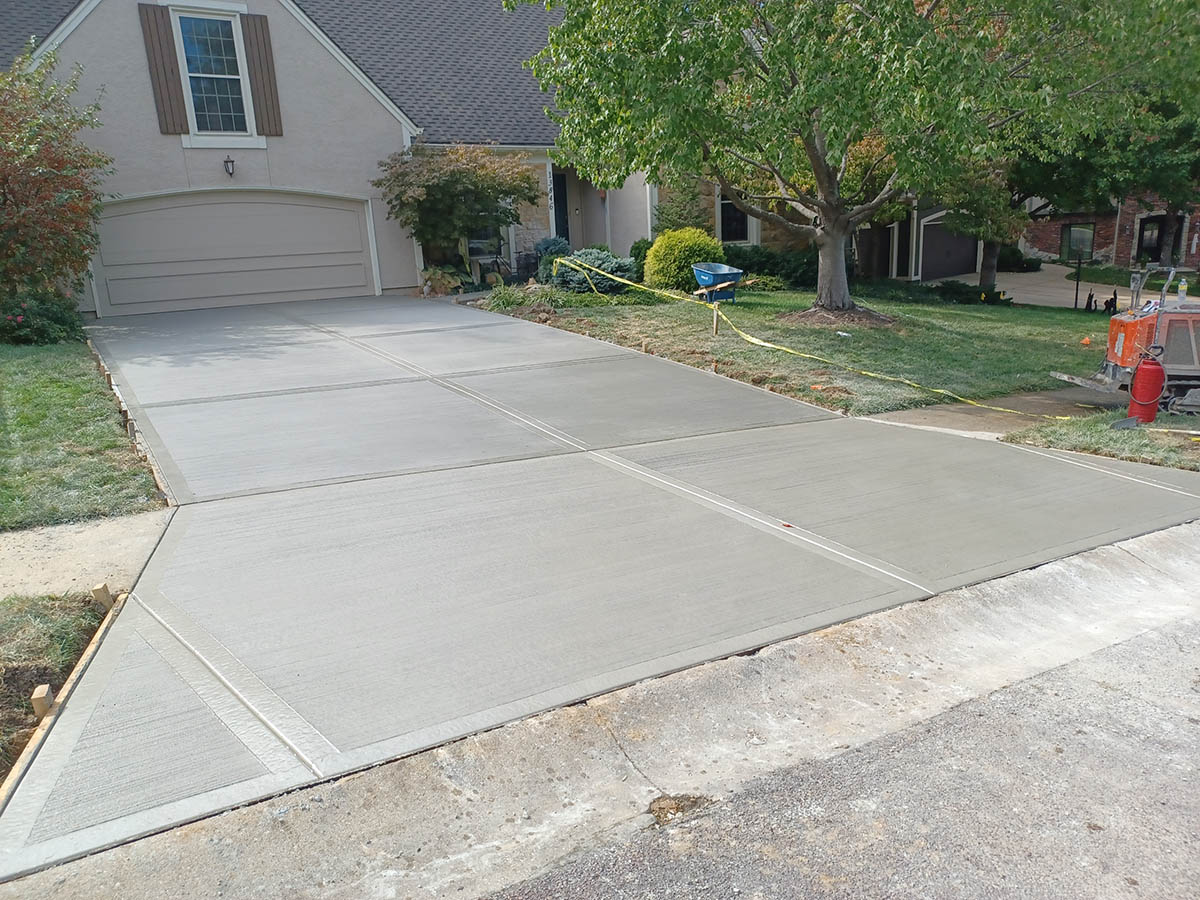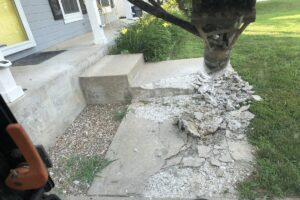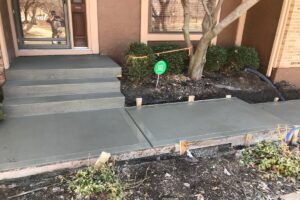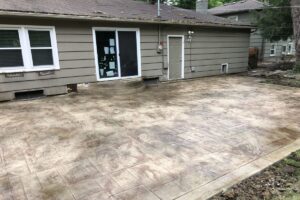Let’s look at the common causes of concrete driveway cracks, those horrific fractures that subtract massive curb appeal points from your home exterior.
It’s an expensive but preventable problem if you understand the root causes (including actual “roots” sometimes). Plus, we’ll share a few maintenance tips for keeping your new driveway concrete in tip-top condition for many long years.
Common Causes of Concrete Driveway Cracks
- Heavy Loads Going Over It
- You can’t ignore the most obvious physical impediment to driveway pavements: the large vehicles that drive over them. Cars, trucks, and SUVs will take their toll one way or the other; it’s only a matter of time. You can, however, mitigate the problem by not parking on your driveway as often. This also limits the chance of accumulating stains from motor oil or AC fluid leaks.
- Invasive Tree Root Systems
- Tree roots are difficult to control, and when they make their way under your concrete surfaces, it’s easy for them to inflict serious damage.
- Freezing & Thawing
- As seasons change, the soil beneath your concrete will undergo an expansion and contraction process repeatedly. As the weather goes from hot to cold, freezing and thawing, the compression and shearing forces will damage the concrete.
- Poor Material Choices for Installation
- Many homeowners lament the short life cycle of their driveway concrete for various reasons. One of the most demoralizing aspects is when cracks could have been avoided with better installation. Some companies lay concrete with mesh wire, rather than half-inch rebar, which doesn’t allow the concrete to withstand heavy forces as well.
Four Effective Maintenance Tips
So, what can you do to halt those horrible driveway cracks? It’s possible to at least limit the risk of concrete damage if you follow these four easy driveway maintenance tips.
Four Ways to Preserve Concrete
- Don’t Let Spills Sit for a Long Time
- It’s never a good idea to let foreign substances and liquids remain on your concrete unresolved. Examples of this include motor oil, grease, certain cleaning solutions, or any other harmful matter. Even if you don’t get cracks, you risk developing unsightly and often permanent stains.
- Don’t Use Harsh or Corrosive Chemicals for Ice Removal
- Almost any salt substance designed to attack ice and sludge on your driveway will eat away at the concrete, eventually. Salt can be rather harsh on the bottom of your vehicle as well. It’s better to try other calcium-based agents during the winter.
- Seal Your Concrete Driveway
- Paver sealing is a terrific way to preserve and protect any concrete material, including stamped concrete for patios, driveways, and sidewalks.
- Pressure Wash Your Concrete Driveway
- Pressure washing is another terrific idea, and you can probably get it done from somebody who also does paver sealing. By now, you might realize a common thread with this advice: the imperative to keep your concrete pavement clean.
When Do You Need a Contractor for Concrete Replacement?
If push comes to shove and you need to replace everything, then Johnson Concrete can assist. How do you know when it’s gotten to that point?
Once your concrete has long cracks, and they’re deep enough to involve the sub-grade, then it’s beyond simply sealing or other cheaper solutions. You might not know for sure when you’ve crossed that line, so it’s wise to call a professional concrete crew for a free inspection.
We Can Thwart All the Common Causes of Concrete Driveway Cracks
Johnson Concrete is Kansas City’s top concrete contractor, a reputation we’ve earned over several years of solving problems for either commercial or residential clients. We can restore driveways, sidewalks, patios, garage floors, and more after they’ve been through years of wear and tear.
Contact Johnson Concrete today to learn effective ways to eliminate the troublesome causes of concrete driveway cracks.




